Thailand’s budding legal cannabis scene was reeling in confusion this morning after a new government order instructed police to arrest anyone selling weed without “permission” – despite the fact no such permission exists.
One of the people currently working on amendments to the bill to regulate weed told Coconuts this morning that the current free-for-all was never intended, and that yesterday’s new order instructing police to “arrest and prosecute” those selling or exporting cannabis without permission was intended to close the legal loophole which has existed since legalization on June 9.
Update: Weed whiplash: ‘Arrest’ order for dispensary operators revoked after spreading confusion, fear
“Dispensaries should never have existed in the first place,” said the woman, who is working with the parliamentary committee to beef up the much-anticipated Cannabis Act. Describing herself as opposed to cannabis liberalization, the doctor spoke on condition of anonymity as she was not authorized to speak to the media.
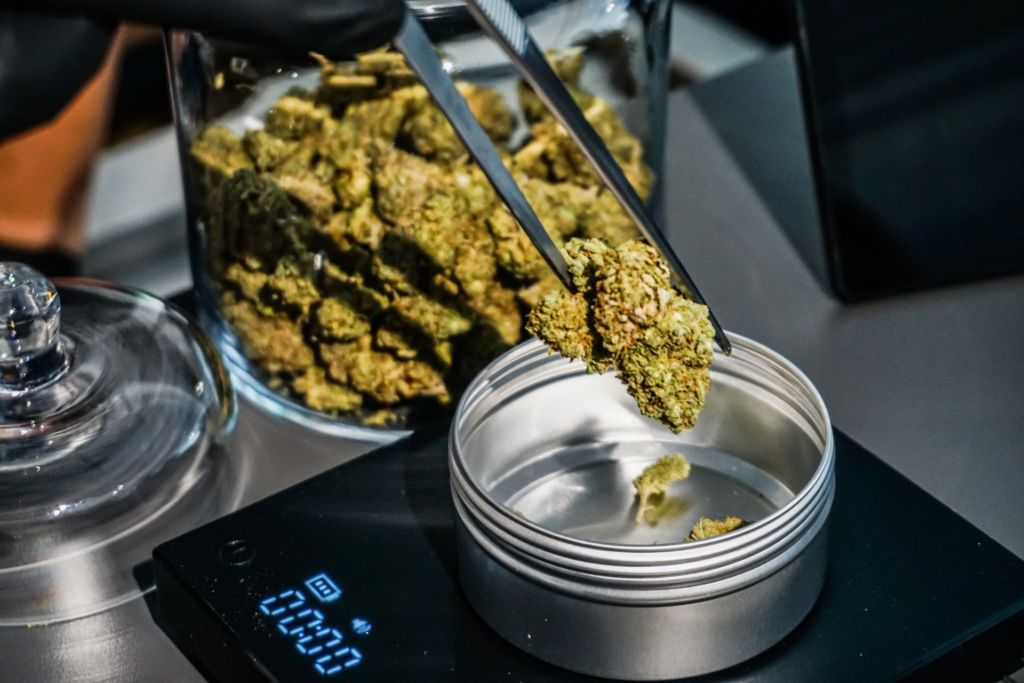
She said that cannabis may only be sold at approved clinics, which would be consistent with officials’ repeated insistence it is meant for “medical purposes” only.
“Those dispensaries should close their shops now,” she said.
That will be crushing news to the legions of longtime advocates and instant entrepreneurs who have hurried to open storefronts in recent weeks.
Several dispensary owners told Coconuts this morning that the health ministry order left them uncertain what to do, whether to open their stores, or how to obtain permission to do so – an uncertainty parroted even by the police.
“I don’t know what to do next. I’m lost at sea,” said one dispensary owner who spoke on condition of anonymity, for fear of unspecified repercussions.
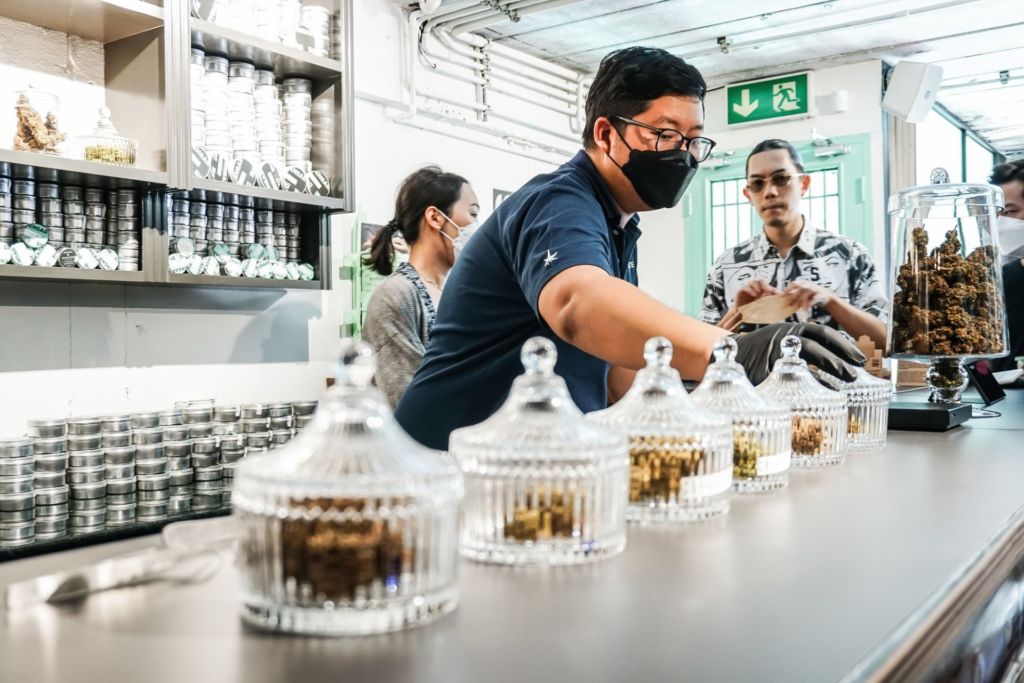
With cannabis recently designated a regulated medicinal to support the setting of an age limit by emergency decree, yesterday’s new order was signed by Narong Saiwong, deputy secretary of public health. It gave no timeline for when it would be imposed.
None of the order pertains to consumption – people are still free to spark up their stash as they were before, regardless of their reason. In fact, the man credited with leading the legalization charge – Health Minister Anutin Charnvirakul – promised yesterday that weed would not be re-criminalized.
But the immediate effect was to throw the rapidly growing community of dispensaries into disarray, with some immediately closing and others taking a wait-and-see approach.
A representative of The Dispensary by Taratera on Silom Road said it has stopped selling buds with THC content until it acquires permission from the authorities.
Asoke-area dispensary owner Chokwan “Kitty” Chopaka this morning announced that she would also no longer sell buds at her shop until it received official approval.
Owners of the Sukhumweed dispensary in Soi Sukhumvit 42 said it was open today and selling buds as usual while a lawyer was dispatched to determine what permission was required.
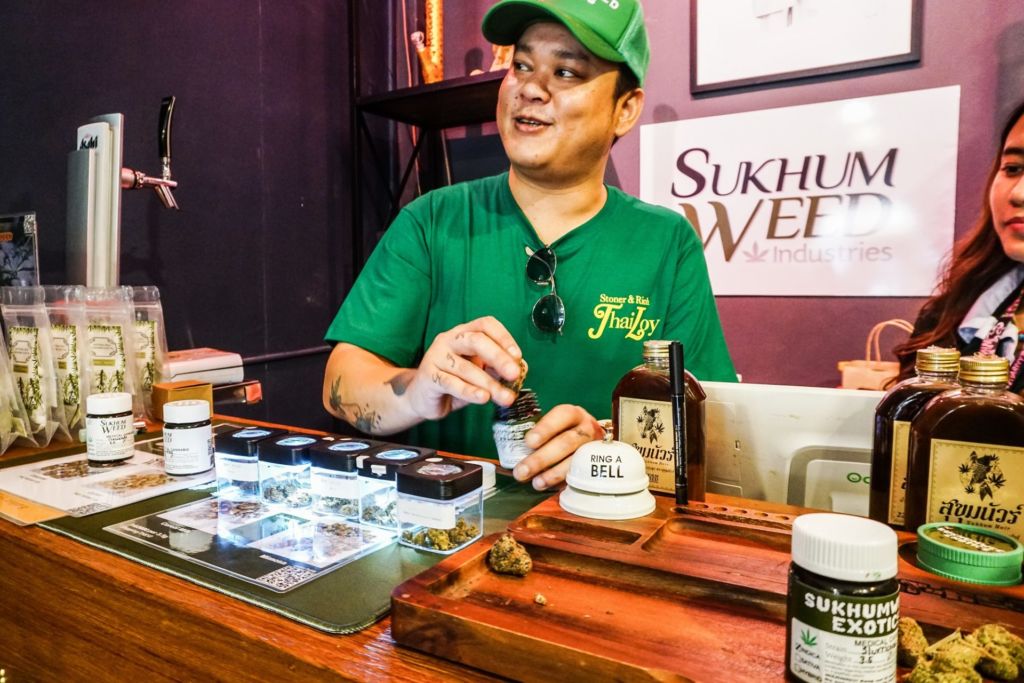
Not even the police had any insight into what it all meant, or how to prosecute violators. Thonglor police chief Col. Duangchote Suwanjaras told Coconuts this morning that he and his team will meet later this week to seek “clarity” on the new order.
“We will discuss later this week for clarity on this,” he said. “Right now, the Cannabis Act hasn’t been enacted yet, so we have to look into the other laws and see which ones we can enforce.”
When weed became fully legal June 9, it was a free-for-all as no regulations had been prepared to regulate its sale or consumption. While parliament works on finalizing a bill that would codify a regulatory framework, speculation has run wild that it will either support the new status quo or drop a new set of draconian prohibitions.
What definitely doesn’t exist, yet, is any form of license or process for obtaining permission as required in the new order.
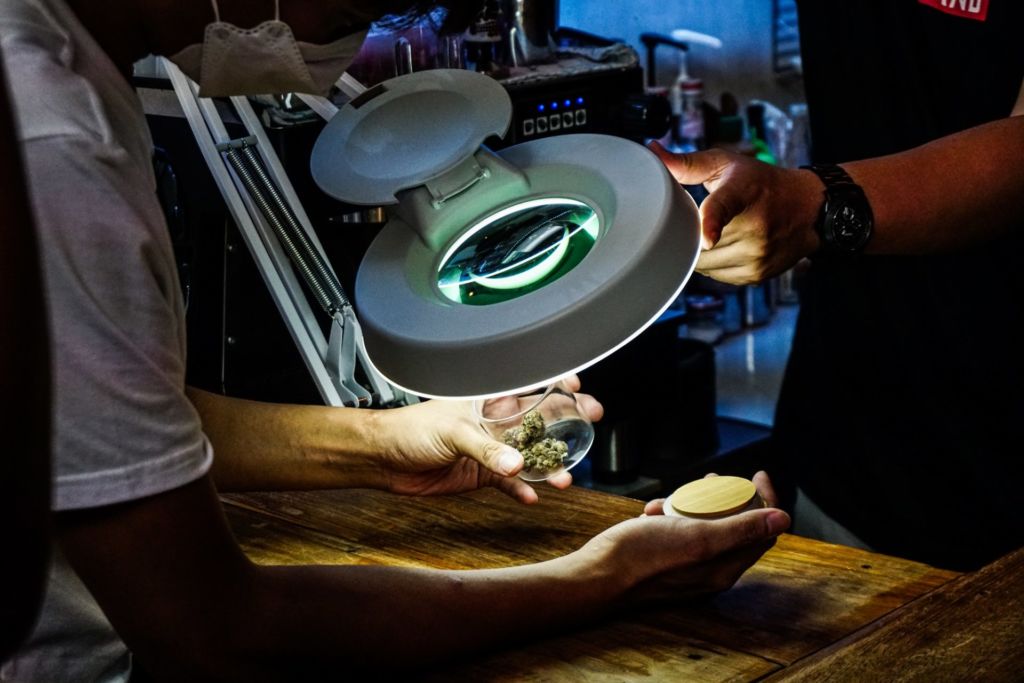
The order also says that since cannabis has been classified as a controlled medicine, people cannot conduct research, export, sell, or process it without the express permission. The order also specifies that permission is to be obtained from the Department of Thai Traditional and Alternative Medicine in Bangkok, or provincial health departments in other provinces.
It states that, “for public order,” the health ministry would notify the Royal Thai Police and officials under existing traditional medicine regulations to prosecute any violators.
Another Bangkok dispensary owner, who refused to give his name for fear of legal repercussions, said that while his dispensary had opened this morning, it quickly closed after staff saw what they believed to be an undercover police officer walk in and take several photographs before leaving. They feared officers might return to raid the store.
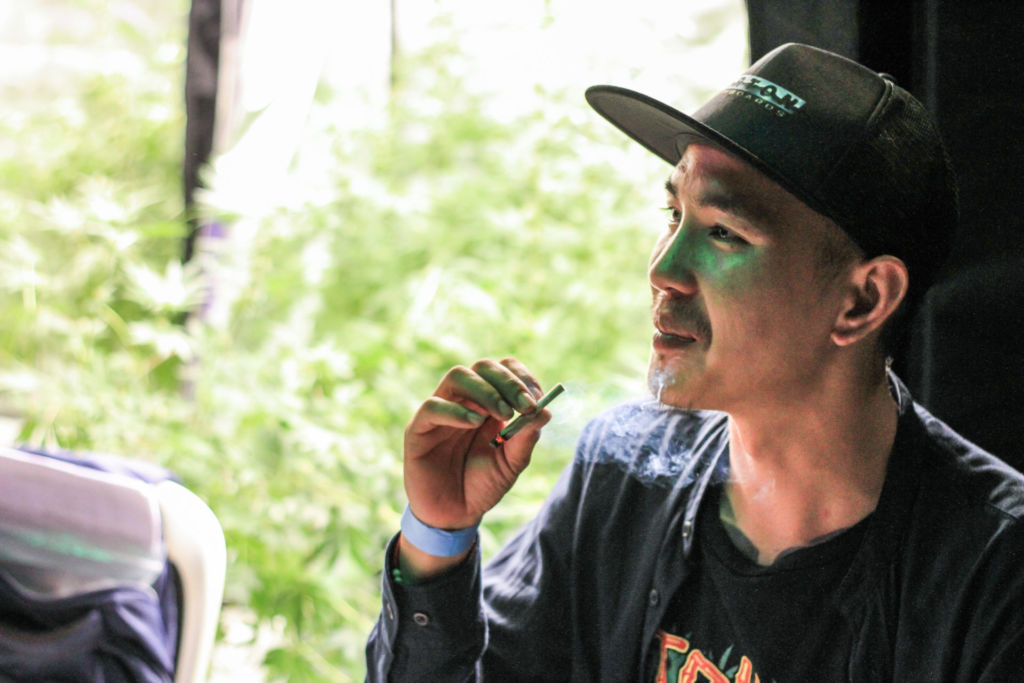
He said dispensary owners should set up an association or network to share useful information and advice, especially during a “confusing time” like this.
Several calls to the Department of Thai Traditional and Alternative Medicine went unanswered this morning.
Police to seek ‘clarity’
Among the issues police chief Duangchote said police will discuss included how to test the level of THC, the psychoactive compound that gets people high. Currently, people can possess cannabis, no matter the THC content, but extracts such as edibles, oils or hashish cannot exceed 0.2% THC.
“We have to find out about that for sure, too,” Duangchote said.
Addressing public confusion about the new order, the chief vowed to find clarity as soon as possible. He did not signal any imminent crackdown or arrests.
“We don’t want to scare people off, but of course something has to be done because right now [cannabis sales] have been way out of line.”
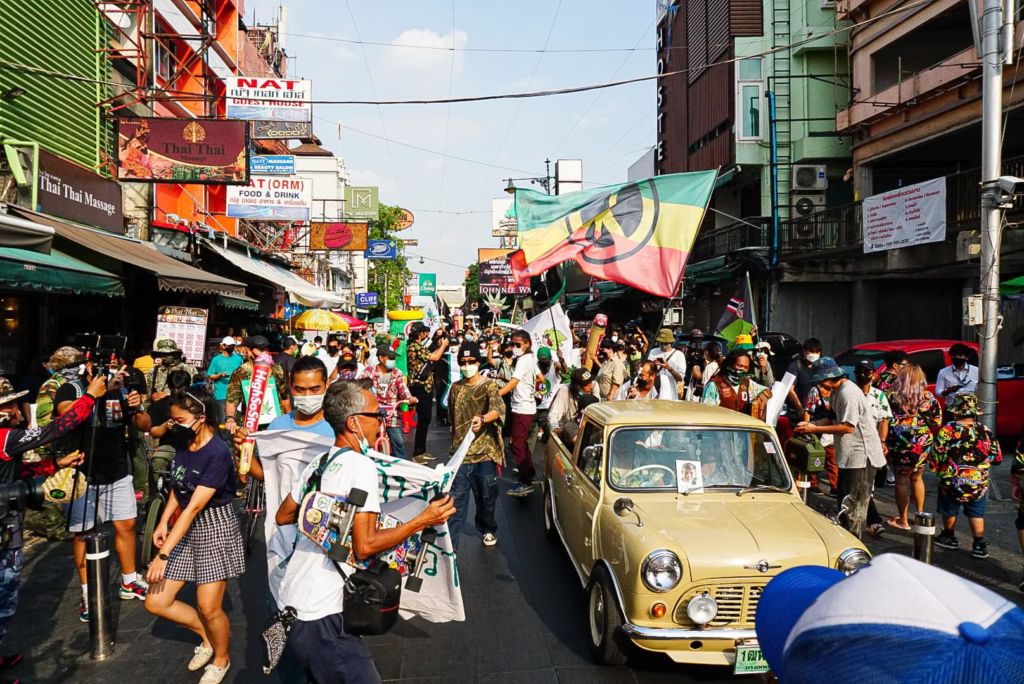
Duangchote referred to the increasingly common sight of people selling cannabis openly in the street, sometimes in plastic bag like candy – alongside the amulets, vegetables and sex enhancement products widely found on sidewalks.
Duangchote said it poses a risk to minors.
Public health minister Anutin Charnvirakul said yesterday that the Cannabis Act should return to parliament by the end of August. If passed, the bill would then go for royal endorsement.
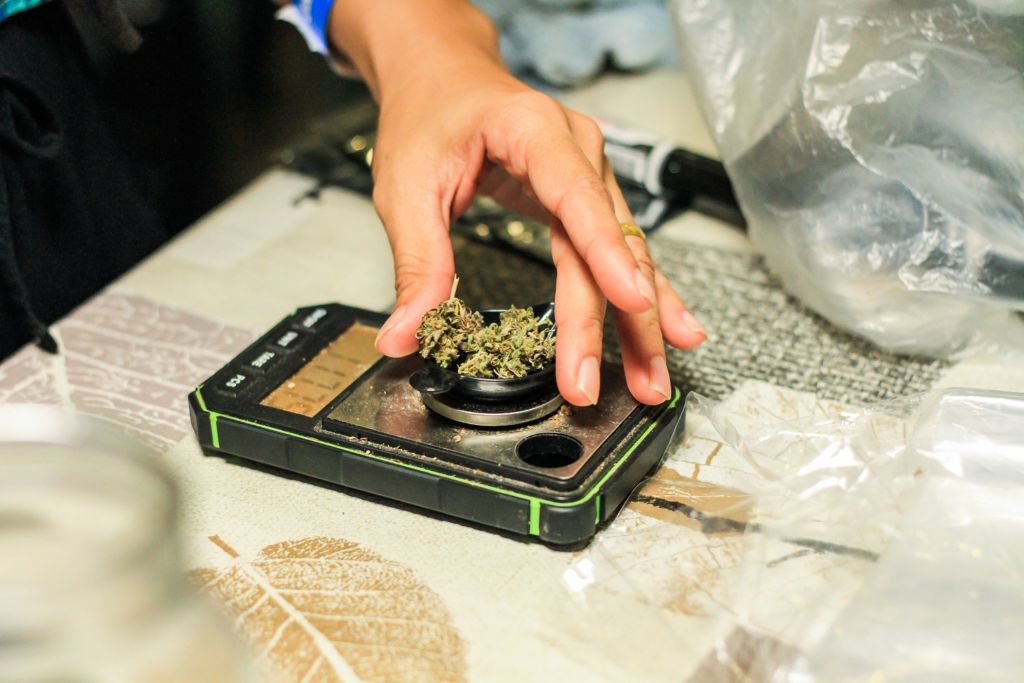
While there was a surprising lack of organized opposition to legalization before it happened – largely as it flew under the radar – the ensuing moral panic has been compounded by unforced errors and the absence of what would, arguably, be valid and useful rules.
The order comes a few days after hundreds of medical staff and alumni from a prominent university hospital suddenly blamed liberal cannabis policies for encouraging recreational use rather than medicinal and harming youth in a petition urging officials to rein it in with strict regulations.






